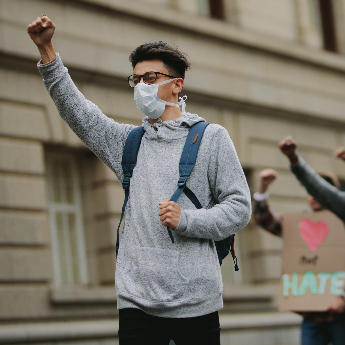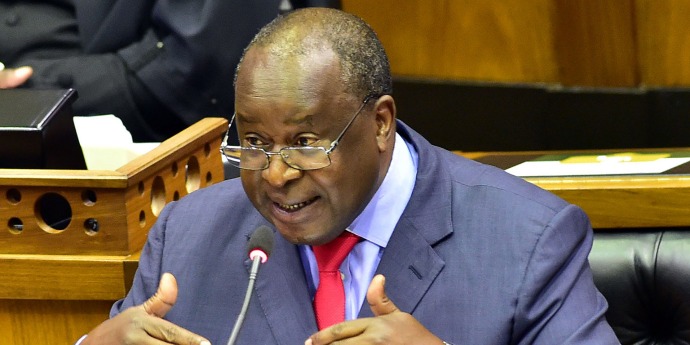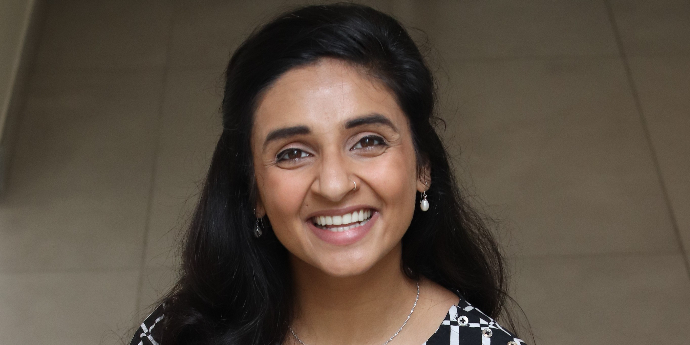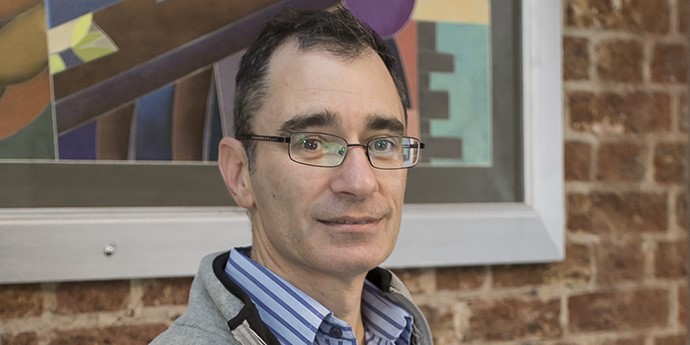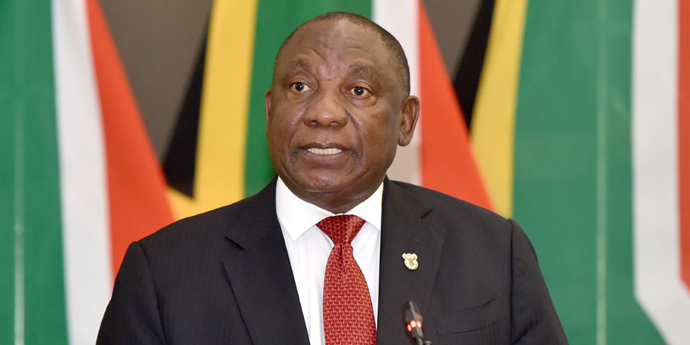As protests around structural inequality and racism rage across the world, we need to re-ignite efforts to give young people a voice at all levels of society, but especially as leaders.
The killing of 46-year-old George Floyd by a policeman in the US has sparked nation-wide protests in that country and right across the world that are shining a spotlight on issues of inequality, injustice and discrimination on an unprecedented scale.
The issues at stake here are systemic and structural in nature. Floyd’s death was but the latest in a string of police killings of black men over recent years. According to the database Mapping Police Violence, black Americans are nearly three times as likely to be killed by police than white people. But as increasing numbers of people take to the streets to protest this fact and the use of excessive violence by law enforcement, police have responded by cranking up that violence. Almost every day videos and news footage emerge of blatant incidences of excessive violence by police against protestors, including on an elderly white man, and even the media.
These incidences are exposing that what we are dealing with is not just a few bad apples in the police force but, as one columnist put it, “a diseased tree”. And it is not just the police service that is diseased, but the entire society.
It is this that has got the world’s attention — because to a lesser or greater degree, all human societies can recognise the truth in this. Our societies are not well. Or, as civil rights activist and author Kimberly Jones powerfully puts it: “The game is fixed … and the social contract is broken!”
COVID-19 had already laid bare these inequalities with marginalised and poor communities — often black — losing their jobs and dying at higher rates than those in more affluent communities due, it has been argued, to a convergence of environmental factors, including living conditions, the nature of work, the prevalence of comorbid conditions such as hypertension and diabetes, and discrimination in the medical system.
The Reverend Rose Hudson-Wilkin, the Church of England's first black female bishop, said in an interview with the BBC recently that structural inequality has been “a greater pandemic” that no-one has seen or noticed until now. “The World does not pay attention unless you stand up,” she said offering her support to protestors in the UK who have been castigated for breaking lockdown regulations in order to make their voices heard.
This is a sentiment that’s often been echoed in South Africa, perhaps nowhere near as loudly in the #FeesMustFall protests of 2015 and 2016, evoking the hashtag movements in the US (notably #BlackLivesMatter). When people, especially young people, find themselves without a voice or without representation in society, they have to speak up and organise for themselves. And they have done so with great effect not just here in South Africa where #FeesMustFall successfully changed the discourse around student access to tertiary education, but in the US, where protests have led to astonishing structural shifts toward defunding the police.
As we mark Youth Day this week, it’s an opportunity to reflect that the vast majority of South Africa’s young people do not have a voice. Over 40% of young people aged 15—34 years do not have a job, and by the first quarter of 2019 they made up a full 63,4% of the total number of unemployed persons in the country. More than half of youth live in low-income households, can’t pay for tuition and don’t have reliable access to the internet.
Yet, research has found that youth — who make up a third of our population, so around 20 million — remain optimistic about the future. They continue dreaming about better lives for themselves and their communities.
As a country, we would do well to tap into that defiant optimism. One way to do so is to provide youth with a clearer path to leadership. Young people live in a world far removed from many of us ‘older’ South Africans, a world where identity — social, sexual, political — is so much more fluid. They have taken on themselves the planet’s ecological and social crises. They communicate in ways we could never have imagined and they don’t play by the same rules. They have much to contribute in terms of a fresh perspective and fresh energy yet, when looking at our leadership structures — notably in government — we don’t really see too many young faces or hear the voices of the youth.
Youth can offer a different model of leadership than that of the current crop of populist authoritarians around the world, of which Trump is perhaps the worst example. We have already seen glimmers of a youthful, buck-the-trend leadership style in the likes of Jacinda Ardern of New Zealand (which has just reported that they have no active cases of COVID-19) and Finland’s 34-year-old prime minister Sanna Marin, a vegetarian raised by same-sex parents. They see and imagine the world differently.
If we in South Africa are to avoid a future of anger-fuelled protests led largely by disenfranchised youth — it would be wise to begin to listen to our young people and invite them to participate in whichever way we can. Community leaders and politicians can start by giving youth a platform to share their ideas and integrating them into strategic roles. And the private sector can redouble its efforts to recruit and advance young and diverse talent.
By so doing we can collectively start to rebuild our social contract so that it delivers the transformation that is needed to build a South Africa where all citizens cooperate for mutual benefit and prosperity.
Camaren Peter is an Associate Professor with the Allan Gray Centre for Values-Based Leadership at the University of Cape Town Graduate School of Business (UCT GSB). He holds a cum laude BSc (Hons) degree in theoretical physics, an MSc in astrophysics and a PhD in Business Administration.

